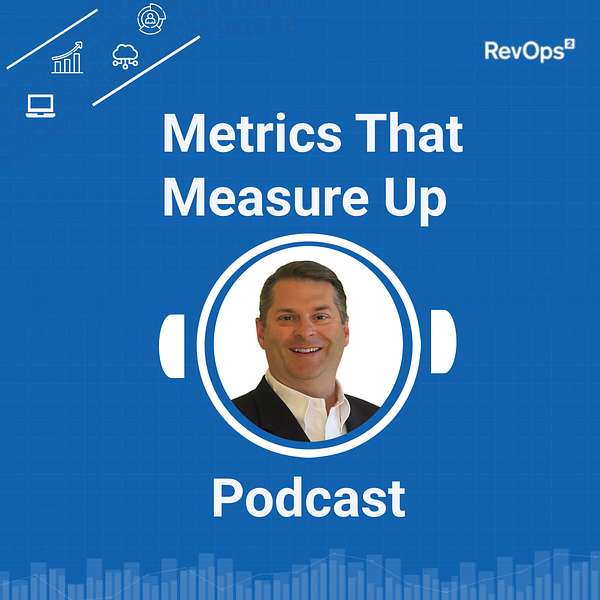
Metrics that Measure Up
Metrics that Measure Up
Podcasts + MarTech Metrics that Matter - with Ben Shapiro, Host of the MarTech Podcast
Benjamin Shapiro started his internet marketing career at eBay, one of the first, largest and most data-driven marketplaces in the world. Ben's 7 years at eBay provided him the foundation of being a great digital marketer, including SEO and content marketing.
Ben caught the Silicon Valley start-up bug, and spent the next 8 years in marketing leadership at B2C early-stage companies, and then he started the MarTech podcast in 2015.
Ben's initial experience with podcasting was "an experiment that went wrong". In this case, wrong meant it was more successful than he could have even dreamed, and quickly he had over 1 Million downloads and a business that usurped his consulting business.
The MarTech podcast was launched to be part of a content marketing program to drive awareness for his consulting business. When Ben first started the podcast, there was not much quality content on MarTech. Within just a few months, the MarTech podcast hit 10,000 downloads and began to provide monetization opportunities, and quickly evolved to be the centerpiece of his career.
Ben shared his perspective on the MarTech industry, and his definition is broader than just "software" that marketers use, but also includes all of the technology, including platforms including Google, Facebook, Snap, etc. in concert with traditional "MarTech SaaS" vendors.
C-Level executives have become more focused on MarTech and how it can positively impact brand as well as traditional customer acquisition and expansion metrics. They also are becoming much more focused on how their company can harness the power of the leading platforms in concert with their internal marketing technology platforms.
Ben shared how MarTech has impacted his podcasting business growth. When building a MarTech stack, he started with what his customers needed, how he could measure their engagement and conversion rate, and thus how he could optimize revenue generation for the podcast to leverage MarTech best practices.
One example was being able to capture unique identifiers for each listener on his podcast, and then drive advertising revenue through re-targeting campaigns for his sponsors.
When I asked Ben about the metrics he uses to measure the health of his podcast, he first defined the differences between impressions, downloads, unique listeners (a listen is not a listener). The problem with using downloads as a key measurement is that a download is often not a listener. What really matters is to know when a download is really a listener and you can target the unique listener via re-targeting to develop a valuable outcome for sponsors.
Being able to map an IP address to a unique mobile identifier is one key data capture that will make your podcast much more valuable to potential sponsors and customers. Ben shares the MarTech stack he uses to accomplish this, including Libsyn, ART19, Podsites, and Choozle.
Ben shared that once you hit 10,000 downloads per month (3K-4K listeners) is a good initial point to start seriously monetizing your podcast. This number is fungible based upon the target audience. In fact, Ben recommended that your "target audience" needs to be broad enough to monetize the podcast, versus it being primarily a component of your content marketing program.
Ben also highlighted that he has found that having a podcast of 20-30 minutes in duration will lead to a much higher listener completion rate. By taking a 50-minute podcast, and dividing it into 2 episodes has multiple positive effects, including being able to place ads at the end of the podcast which is actually heard.
If you are an aspiring podcaster or a marketer desiring to learn about building a great podcast as part of your brand awareness and content marketing strategy, this is a great listen.